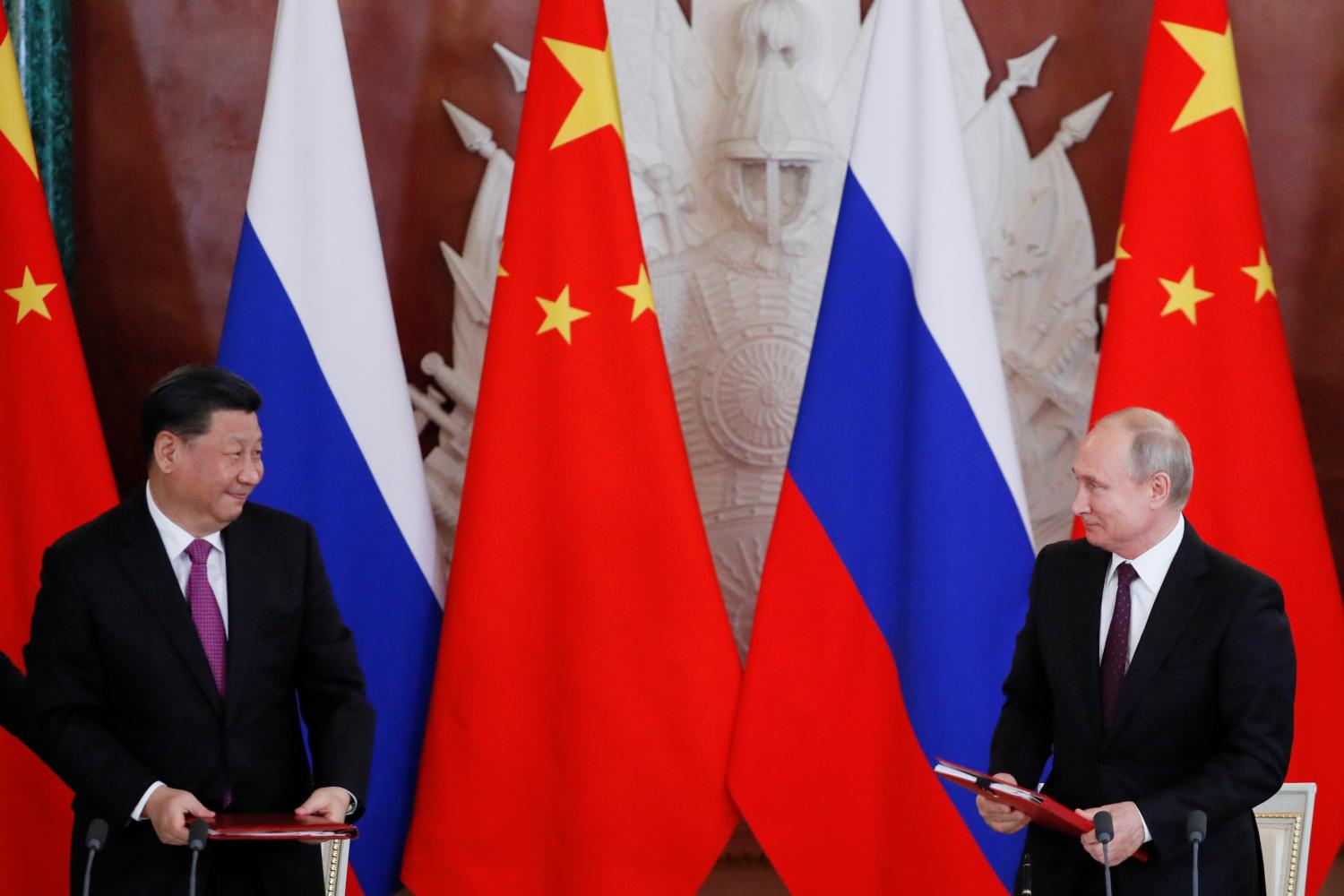Executive Summary
 The China-Russia relationship has become an increasingly robust, pragmatic strategic partnership since 2014, in part because the United States is pursuing policies that have driven the two countries closer together. Presidents Vladimir Putin and Xi Jinping are both authoritarian leaders whose primary preoccupation is regime survival and who are allergic to Western criticisms of their domestic systems and the repressive policies of their respective governments. China and Russia are revisionist powers in as much as they share a commitment to creating a “post-West” global order which takes their interests into account and is conducive to authoritarian rule.
The China-Russia relationship has become an increasingly robust, pragmatic strategic partnership since 2014, in part because the United States is pursuing policies that have driven the two countries closer together. Presidents Vladimir Putin and Xi Jinping are both authoritarian leaders whose primary preoccupation is regime survival and who are allergic to Western criticisms of their domestic systems and the repressive policies of their respective governments. China and Russia are revisionist powers in as much as they share a commitment to creating a “post-West” global order which takes their interests into account and is conducive to authoritarian rule.
Since Russia’s 2014 seizure and annexation of Crimea from Ukraine and the West’s subsequent attempts to isolate Russia, Putin has increasingly turned to China, which has enabled Russia to surmount the isolation and flourish on the world stage. Sino-Russian economic and energy ties are expanding. China is economically more important to Russia than vice versa and is Russia’s number one trading partner and the second-largest purchaser of Russian military hardware. The new Power of Siberia gas pipeline will increase their energy interdependence. Sino-Russian cooperation in the military and high-tech fields is also growing. Their joint military exercises and air patrols, as well as joint work on artificial intelligence and biotechnology pose challenges to the United States.
There are significant asymmetries in the relationship, and mutual mistrust remains, especially in Russia’s rapidly depopulating Far East, where Chinese traders and entrepreneurs are abundant. Nevertheless, Russia appears to have accepted its role as a junior partner to China. This is in part because China, unlike the United States, is not perceived to represent a threat to Putin’s rule. Those who believe that Russia would be willing to distance itself from China and align itself with Washington against Beijing underestimate the extent to which China’s unequivocal support of Russia’s domestic system is an existential issue for the Putin regime. Moreover, the twin U.S. policies of sanctioning Russia and pursuing a trade war with China have pushed the two countries closer together. Washington could promote closer ties to Russia by lifting sanctions, extending the New START treaty and even modifying its stance on the Ukraine conflict. But it is unlikely that this would lead Russia to distance itself from China.




